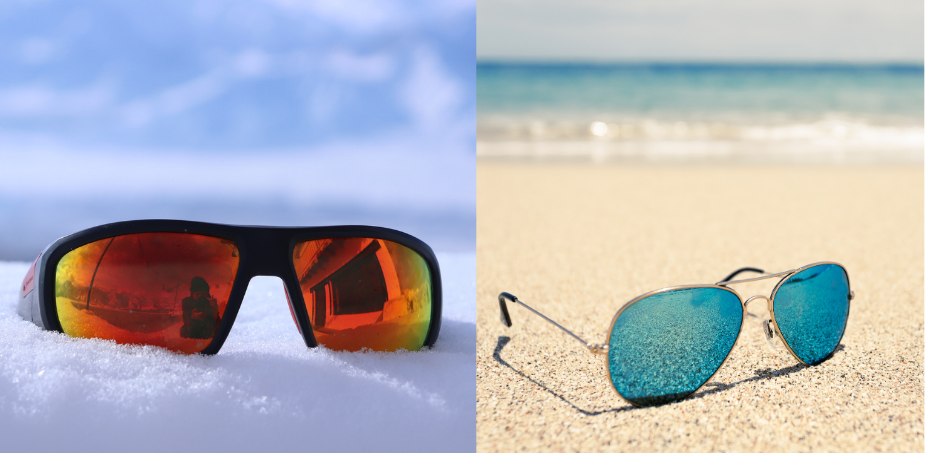Summer vs Winter Glasses: Why It Matters

We often think of our glasses as a year-round accessory. But just like we change our clothes with the seasons, switching up your eyewear can make a big difference to your comfort, safety, and eye health.
At OptiCare Health, we see many patients who are surprised to learn that one pair of glasses may not cover all their needs throughout the year. Let’s explore why.
Summer: Strong Sunlight, Glare, and UV
In summer, UV rays are stronger, and the sun stays higher for longer. This means your eyes face prolonged exposure to harmful radiation—even on cloudy days.
What’s essential in summer eyewear?
-
100% UV protection (look for UV400 labeling)
-
Polarized lenses to reduce glare from water, pavement, and car hoods
-
Anti-scratch and smudge-resistant coatings (great for outdoor activities)
If you drive, hike, or spend time on or near water, proper sunglasses are not just a style choice—they’re eye protection. Without the right lenses, you’re at higher risk for long-term damage like cataracts or macular degeneration.
Winter: Reflection, Glare, and Hidden Hazards
It may surprise you, but winter sun can be just as harsh on your eyes—especially when it reflects off snow and ice. This glare can reduce visibility while driving or enjoying outdoor sports.
What’s different in winter eyewear?
-
Polarized lenses are helpful for cutting down snowy glare
-
Anti-fog coatings can be useful for those moving between warm and cold environments
-
Larger frames or wraparound styles offer extra protection against wind and cold air
If you ski, snowboard, or drive in snowy areas, consider winter-specific lenses or coatings. Your eyes will thank you.
Why One Pair May Not Be Enough
You wouldn’t wear sandals in a snowstorm or a parka to the beach. Similarly, your eyes have different needs in different seasons.
Many of our patients choose to invest in two pairs of glasses:
-
A summer pair with maximum UV and glare protection
-
A winter pair designed for reflection control and added physical protection
With our Virtual Try-On tool, you can see how different frames suit your face before you choose. It’s an easy way to explore options that match both the season and your style.
The Role of Eyewear for Driving and Outdoor Work
Drivers benefit from season-specific lenses more than most. Summer’s harsh sunlight can make road glare dangerous, while winter’s low-angle sun and snow reflection create similar risks.
Outdoor workers—from landscapers to delivery drivers—also benefit from switching up eyewear seasonally. The right lenses don’t just improve comfort—they help prevent accidents and eye strain.
How OptiCare Health Helps
At OptiCare Health, we’re committed to helping you choose eyewear that fits your life. Whether it’s summer sunglasses with top-tier UV protection, winter frames with anti-glare coatings, or year-round solutions—you’ll find it here.
Our team is ready to guide you through styles, coatings, and features that suit your daily needs. And with our Virtual Try-On, you can preview before you step into the clinic.
Because good vision shouldn’t be seasonal—but your eyewear might need to be.
